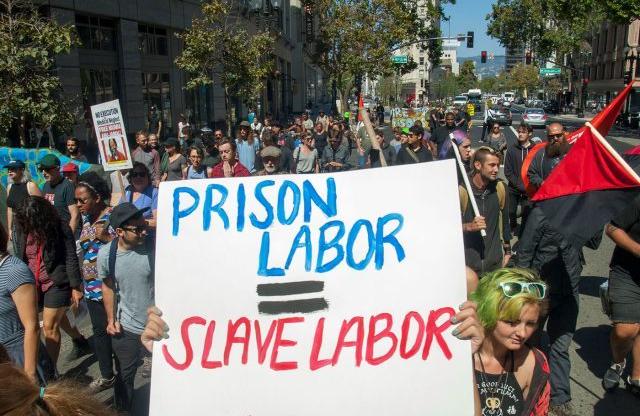The plaintiffs said they are regularly forced by the ADOC to work at McDonald’s, Kentucky Fried Chicken, Wendy’s, Burger King, Anheuser-Busch, auto-manufacturers and meat processors. The inmates also work for the cities of Montgomery, Troy, and the Alabama Department of Transportation.
In 2023, the state of Alabama made an estimated $450 million from the “convict leasing” system. The complaint discloses that most inmates are paid less than the minimum wage. The Department of Corrections takes 40% of the inmates’ total earnings, before taxes, child support, restitution, and other deductions. Furthermore, prisoners are responsible for personal expenses such as meals, transportation to the job and laundry for the job. A 40-hour work week yields less than $90.
The complaint points out that the prison population in Alabama is disproportionately Black, and that while Black people make up only 26% of the state’s population, they account for 54% of the prison population.
Plaintiffs and local civil rights leaders understand these prison conditions as a continuation of post-Reconstruction era policies, including forced sharecropping. The complaint states that it is “no accident that the people caught in a labor-trafficking scheme are Black,” and that prisoners are “like individuals who were enslaved and forced to work Alabama’s cotton fields, and those forced to participate in the sharecropping and convict leasing schemes that followed the end of the Civil War.”
While the convict leasing system was banned by Alabama in 1928, the tenuous language of state and federal laws regarding the practice mean that prisons still engage in convict leasing. Perhaps the most egregious loophole that United States prisons and corporations utilize to sustain their labor-trafficking schemes is the 13th Amendment, which bans slavery and involuntary servitude “except as a punishment for a crime.”


